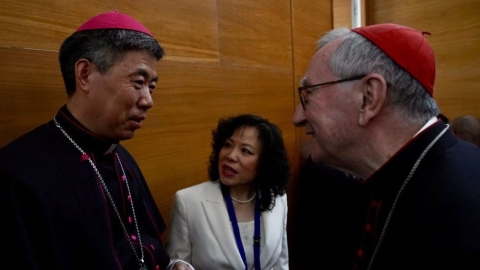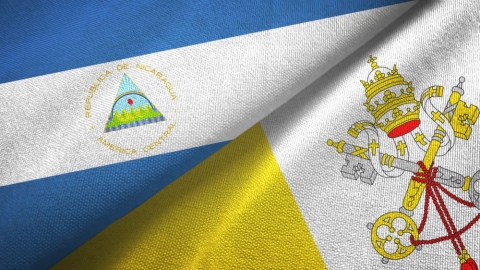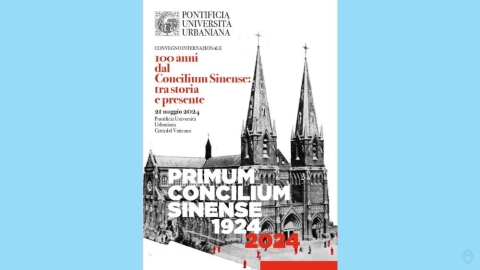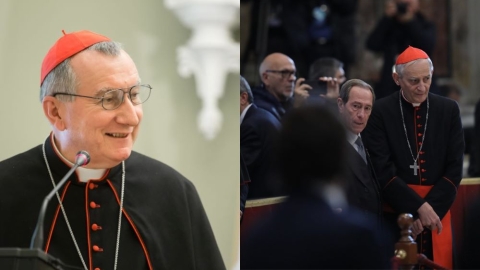China and the Vatican at a Time of Diplomatic Warming

Beijing Cathedral
Will there be, in the more or less near future, an apostolic nuncio in Beijing? The same question can also be posed another way: Will Taiwan bear the brunt of the Holy See’s current policy towards China? One might think so when considering certain signals that arose during Pope Francis’s visit to Mongolia, from September 2 to 4, 2023.
For the record, after the rupture of diplomatic relations between the Holy See and the People's Republic of China in 1951, the nunciature was transferred to Taipei, where from that point forward it played out its function as the “bridge between the universal Church and the Chinese Catholics” as Rome wanted it then.
But in its quest for rapprochement with mainland China – which began well before the current pontificate – the Holy See has reduced its presence in the former Formosa, leaving only one chargé d'affaires on the spot.
Subsequently, in September 2018, the People's Republic of China and the Holy See signed a provisional agreement authorizing the pope, in particular, to appoint bishops previously approved by the Chinese Communist Party.
So many gestures of conciliation vis-à-vis the red mandarins, which the Taiwanese Catholics have resigned themselves to accept, not without a certain bitterness, fearing to see in this the sign of the future loss of the island’s independence.
Fears that are unlikely to be appeased after the apostolic trip the Sovereign Pontiff made to Mongolia at the beginning of September 2023. A few days before this trip, taking advantage of the solemn Mass at the start of the diocesan seminary in Beijing on August 28, the Archbishop of the Chinese capital formulated a very special prayer in his homily, calling for “the rapid establishment of diplomatic relations between the Holy See and China.”
Remember that when Giuseppe Li Shan, a Chinese bishop recognized by Rome, became the president of the Patriotic Association of Catholics of China – an entity led by the Chinese Communist Party (CCP) – it is tempting to think that the prelate would not have dared to make such a prayer without the CCP's approval. Especially since Bishop Li Shan gave enough pledges of good conduct to the masters of Beijing in the past.
On the other hand, Vatican diplomatic custom requires the Pope to send a telegram of blessing to the Heads of State of the countries overflown by the Pope's plane. Between Italy and Mongolia, there are about ten countries that have this telegram, going out and then back, including China since the overflight of the country is necessary.
The Sovereign Pontiff was thus able to speak directly to Xi Jinping, certainly within a formal framework, but one which recalls the desire of the head of the Church to land his plane in Beijing one day: “Back in Rome after my trip to Mongolia, I renew my pious wishes towards your Excellency and the people of China, and I invoke upon you all the abundance of divine blessings.”
The Pope also took advantage of the Mass he celebrated in the Mongolian capital to send a signal of goodwill to the Chinese president: “I would like to take advantage of your presence to warmly greet the noble Chinese people.… And I ask Chinese Catholics to be good Christians and good citizens.”
It is a way of appeasing China, which has made the “sinicization” of religions the sine qua non condition for them to continue to exist. For the greatest misfortune of Chinese Catholics to whom many vexations of all kinds do not cease to be imposed, and who could feel left behind in this offensive of the smile between the Pope and their president.
The messages were received in any case since the current Chinese leader sent a telegram to the Holy Father declaring he “wants to strengthen mutual trust with the Vatican,” and judging that the Pope's words “reflected friendship and good will.”
The diplomatic barometer between the Vatican and China seems to be in good shape.
(Sources : Salle de presse du Saint-Siège/Asianews – FSSPX.Actualités)
Illustration : alexandrine_chan, CC BY-SA 2.0, via Wikimedia Commons





